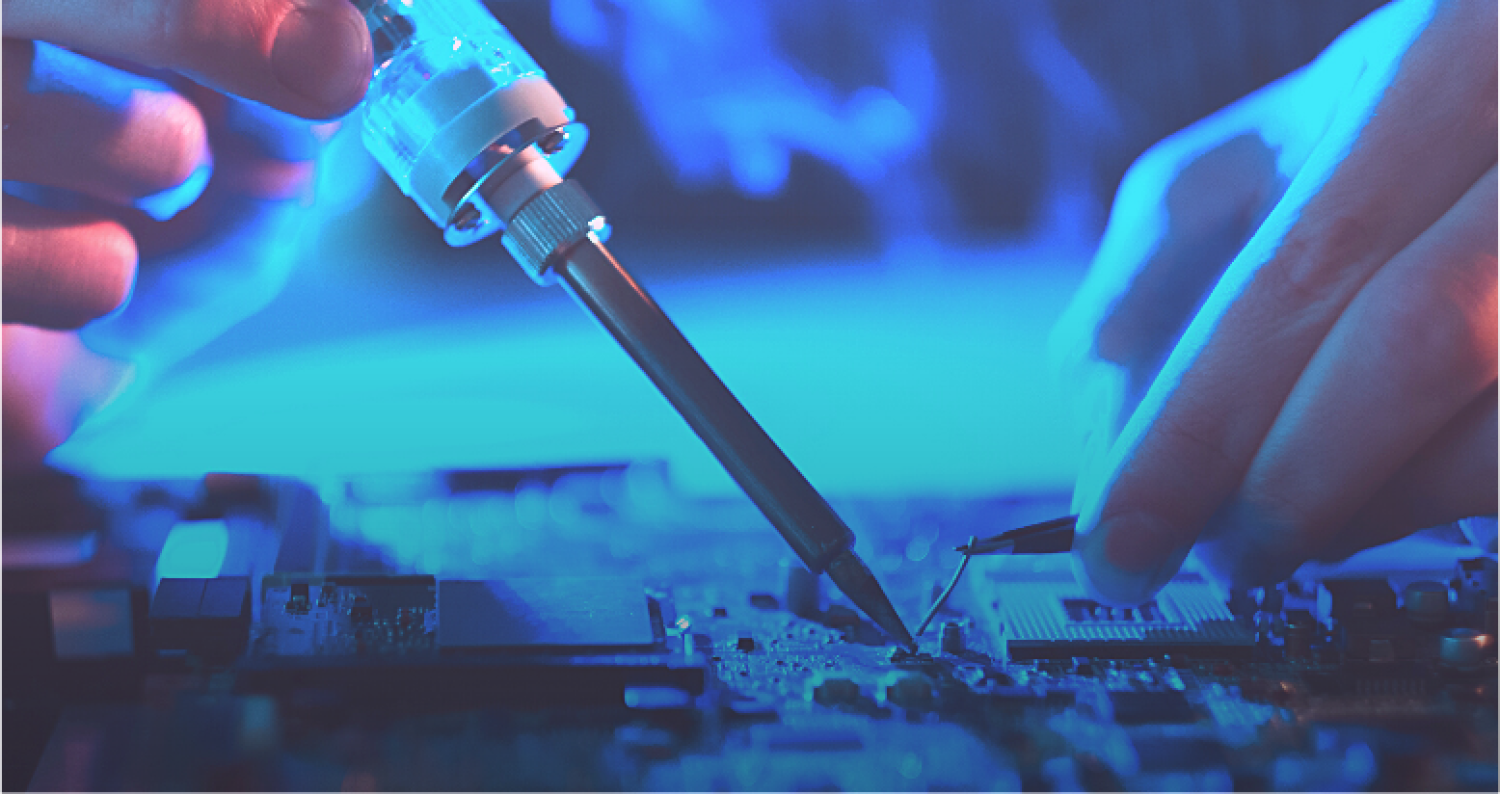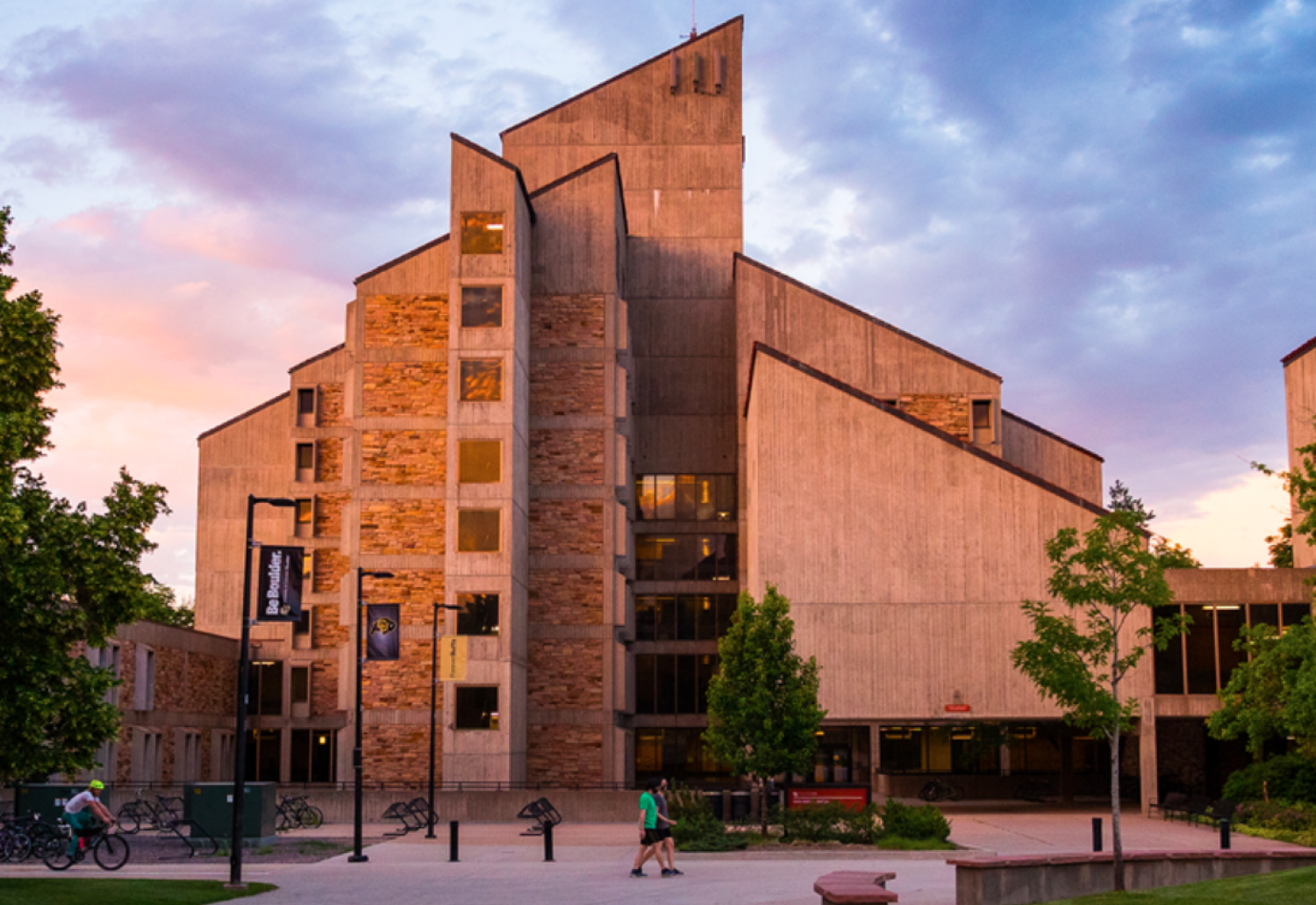Electrical, Computer & Energy Engineering Department News - March 11, 2025

We welcome your submissions for our weekly newsletter for faculty, staff, and graduate students. Please send a brief paragraph with what you'd like included to Carolanne Ayers before noon on Thursday to be included in the following week's newsletter!
Department News

Department Meeting - Thurs., March 13, 2025
This week’s department meeting will be on Thursday, March 13th, and will include the following:
- Announcements
- Lunch: Sandwiches
- Main Agenda: Faculty Hiring Discussions (Power/Controls/EngEd)
ECEE sparks STEM curiosity at 2025 Denver Metro Science Fair

The ECEE Department participates in the 2025 Denver Metro Science Fair and engaged with middle and high school students through STEM activities.
The Electrical, Computer & Energy Engineering Department sparked STEM excitement at the 2025 Denver Metro Science Fair, which was held at CU Denver, where more than 300 students explored hands-on activities like building paper circuits and changing LED colors.
With enthusiastic participation from students and parents alike, the ECEE team left a lasting impact, inspiring the next generation of engineers.
Special thanks to undergraduate students, Stephanie Torres, Matusala Tewelde, Dutt Kalluri, Farah AlSaleem and faculty members, Eugene Liu, Melinda Piket-May and her husband Tim and Keriann Jacobson from the Integrated Teaching and Learning Program, who guided students through interactive learning, helping them discover the creativity and problem solving behind electrical engineering.

Eugene Liu, associate professor, and Stephanie Torres, undergraduate student, work with students on LEDs and circuit board activities.
Celebrating 5 Years of Lori Meehan in ECEE!

Please join us in congratulating Lori Meehan on five years of dedication and hard work in ECEE!
Thank you, Lori, for all the amazing things you do for us—we appreciate you!
The University of Colorado International Tax Office partners with Sprintax, using Sprintax Calculus and Sprintax Returns to support nonresident alien employees and students in their personal tax filing obligations.
The International Tax Office will share an access code via email for Sprintax’s online tax preparation tool, Sprintax Returns, free of charge. These access codes will enable nonresident alien employees and students in F or J status to file their 2024 federal tax return. Follow this link for more information!
Schedule Your Capital Asset Inventory Lab Walkthrough

It's time to schedule your 2025 Capital Asset Inventory lab walkthrough! Please contact Bret Moreland as soon as possible to secure your appointment.
Bonus: The first 15 PIs to schedule will receive their choice of an antique wooden-cased D'Arsonval meter or a three-pack of Belgian chocolate bars (while supplies last).
Upcoming Seminars
ECEE PhD Thesis Defense: Practical Test Waveform Classes and Methodologies for Interference Testing in Communication Systems by Michelle Pirrone
📅 Date & Time: Friday, March 14, 2025 | 2:00 – 4:00 p.m.
📍 Location: ECNT 312
About the Speaker: Michelle Pirrone is a PhD candidate in the Electrical, Computer & Energy Engineering Department at the University of Colorado Boulder. She is advised by Professor Sean Shaheen and Dr. Adam Wunderlich (NIST).
Abstract: Interference in communication systems is a growing problem as the frequency spectrum becomes increasingly congested and as spectrum regulations allow more devices to share frequency bands. Therefore, it is necessary to perform interference testing on communication systems and devices to evaluate system performance in intended applications and environments, develop more robust devices, and ensure compliance with regulations. Current electromagnetic compatibility (EMC) and electromagnetic interference (EMI) practices and standards attempt to find a balance between efficient, yet realistic methods to test communication systems for development and deployment. However, it remains unclear if current test standards are sufficient for modern interference problems, particularly because suggested test waveforms lack the time and frequency structure found in real-world communication signals.
This thesis proposes a novel interference waveform class, pulse-modulated noise (PMN), as an effective strategy to induce realistic interference conditions on consumer off-the-shelf (COTS) communication systems, provides new methodologies to perform EMI testing on COTS systems, and further investigates the effects of interference time structure. PMN is an accessible waveform class that is demonstrated to cause a broader range of impacts on a victim link as compared to additive white Gaussian noise (AWGN), a typical interference signal in EMC standards, and causes similar impacts on the victim system as real-world, measured communication signals. Additionally, this research proposes and demonstrates the need for interference testing at both sides of a bidirectional communication link, in contrast to only at the destination of the victim system. Further contributions to the EMI field include the development of a new, automated testbed, proposed testing strategies, and the investigation of synthetic LTE signal generation and interference impact.
High-fidelity Detection and Continuous Operation of Strontium Arrays in Optical Lattices by Johannes Zeiher
📅 Date & Time: Thursday, March 20, 2025 | 4 p.m., Refreshments at 3:30 p.m.
📍 Location: JILA X Wing X317/X325
Abstract: Atom arrays have shaped the research frontier in quantum simulation, quantum metrology and quantum computation in recent years. n most experiments, trap configurations are formed via holographic methods or acousto-optic deflectors, which offer exceptional versatility and dynamic control.
In this talk, I will introduce a complementary approach to realizing microscopically controlled atom arrays by combining static large-scale optical lattices with optical tweezer arrays. Utilizing a specialized, highly anisotropic lattice geometry, we directly load thousands of individually addressable strontium atoms from the magneto-optical trap. These atoms are subsequently imaged with high fidelity and minimal loss using repulsive Sisyphus-cooling. Exploiting a bichromatic combination of lattice array and optical tweezer array, we demonstrate the iterative assembly and continuous operation of atom arrays with more than a thousand sorted atoms. To prepare our system for applications in quantum computing and quantum simulation, we furthermore realize a qubit in the meta-stable fine-structure states of strontium. We demonstrate long coherence times and high-fidelity manipulation of this qubit, as well as fast initialization via coherent three-photon coupling from the ground state. Our work paves the way to scale tweezer-based quantum simulators to larger system sizes and opens an alternative preparation route for Hubbard systems in optical lattices without the need for evaporation.
Student Announcements
📅 Date & Time: Thursday, April 10, 2025 | 1 p.m. - 2 p.m.
📍 Location: Norlin E11, Norlin Library
Join Engineering, Science and Design Librarian Emily Dommermuth and Scholarly Communication Librarian Melissa Cantrell to learn about the value and benefits of open access (OA) publishing in a workshop tailored for graduate students in engineering and applied sciences.
We’ll provide concrete steps you can follow to expand the reach of your scholarship by making it openly accessible via multiple pathways, including how to take advantage of University Libraries' financial support for OA publishing.
This is a hybrid event. 30 seats are available for in-person attendance in Norlin Library room E113, or you can register to attend via Zoom. This is a brown bag workshop: feel free to eat your lunch during the workshop. Coffee and light snacks will be available for those attending in-person.
Registration is required. There are 29 in-person seats available. There are 100 online seats available.
CU’s Workforce Development Hub is accepting proposals for Workforce Development Seed Grants to support creative approaches to skill development and foster new models of learning that go beyond traditional education. This is the first year this program has been offered, and the intent is to fund early-stage pilot programs that seek to test new ways of building skills at CU Boulder. Proposals are due by April 15, 2025, and key information is below:
- Award amount: between $5-50K
- Proposal requirements: designed to straightforward and easy – including a max. narrative length of just 3 pages
- Funding office: Workforce Development Hub, CU Boulder Research & Innovation Office
- Program type: seed funding to launch a pilot or proof of concept for a novel workforce development idea
- Information session: March 11 from 10a-1045a (registration available on landing page linked above)
Questions? Please reach out to workforcedev@colorado.edu.
To the Graduate and Professional student body:
The Graduate and Professional Student Government (GPSG) has opened applications to join their team for the upcoming academic year! Positions are paid with a biweekly stipend. International students can apply, too! All GPSG positions (unless otherwise disclosed) are paid a bi-weekly stipend, which is not recognized as campus employment. International students can apply with no consequence relating to their visa work restrictions.
Graduate and professional students come from a wide range of backgrounds and have diverse needs. As such, our organization needs members from all disciplines, programs, and experience levels. No matter what your interests are or how much time you have to offer, GPSG has a position that can work for you.
To learn more about the available positions and how to apply, please visit our website: https://www.colorado.edu/gpsg/elections. There, you will find an information packet that answers the big questions you may have about working with GPSG. And do not hesitate to reach out to us with any questions!
Applications are due on March 23 at 11:59 p.m. Apply now!
IT News
Secure Computing
OIT is leading a campus-wide project to enhance the security of our computers, information, and network.
- Phase I: Gathering information about all computers on campus.
- Phase II: Assessing necessary actions for each system—ranging from no changes to full replacements—and determining potential campus funding for these upgrades.
If you haven’t already completed the required computer inventory form, please do so as soon as possible. Ensuring all computers are accounted for increases the likelihood of securing funding for necessary updates.
If you’ve already completed this for yourself, your students, and your lab—thank you! For any questions, contact Bret Moreland.
Improving CU Boulder's Email Deliverability: Campus DMARC Policy Reaches Full Enforcement
CU Boulder's campuswide email authentication policy, which instructs email servers to quarantine messages that claim to be from CU Boulder but that fail authentication checks, has now reached full enforcement. Since moving to 50% enforcement in late January, OIT has quarantined 31,705 messages that used a spoofed CU Boulder email address to target our community.
If you find that a legitimate email from CU Boulder has been quarantined, OIR recommends that you:
- Release the message to your inbox.
- Add the sender to your Safe Senders list.
- Tell the sender their message was quarantined so they can check their authentication status.
To learn more about email authentication, visit OIT's Email Authentication & Anti-Spoofing page (login required). Visit OIT's Email Authentication - Help and Email Authentication - FAQ pages to learn more. If you have additional questions or concerns, please contact the IT Service Center at oithelp@colorado.edu or 303-735-4357.View news story here
IT Support
- Teaching Labs (Capstone, Embedded Systems, Power Lab, Optics, RF, Highspeed Measurements, Circuits) IT Support: http://itll.link/servicedesk
- Research Labs License Server Support: support@craftypenguins.net
- Research Computing: https://www.colorado.edu/rc/
- Research License Server (ecee-flexlm-2.colorado.edu): Submit a request to: support@craftypenguins.net
- Conference Rooms ECEE 1B55 & 1B45: Send an email to ECEE IT support: http://itll.link/servicedesk
- IT Service Center: Contact the IT Service Center (303-735-4357 or help@colorado.edu) for help with all OIT services including email and IdentiKey, Internet connectivity and other technology-related questions.
- Buff Techs Desktop Support: OIT provides no-cost software support for laptop and desktop workstations to faculty, staff, and students. You can also register your laptop to aid in recovery in case it is lost or stolen.
- Dedicated Desktop Support: Departmental IT Support customized for your needs.
- Network Troubleshooting: Submit this form to report network connectivity issues on campus.
- Classroom Technology Problem Reporting form: Submit this form to report an issue with technology malfunctioning in a classroom (except for the ECEE classrooms – contact Bret.Moreland@colorado or 303-503-7939 for support)
- Self-Service Help Request: Submit a request directly to the ITSC using ServiceNow
- Lightboard: Contact Andy Garcia, Andrew.Garcia-3@colorado.edu, in the Mechanical Engineering department for scheduling and technical assistance
- OIT Website https://oit.colorado.edu/support
All other issues, contact Robin.McClanahan@colorado.edu or 303-492-6736

